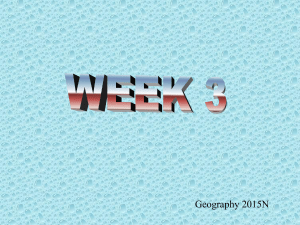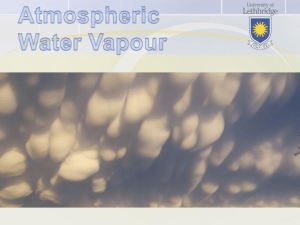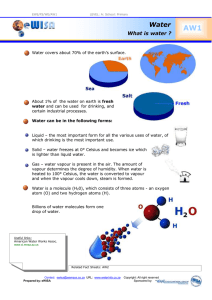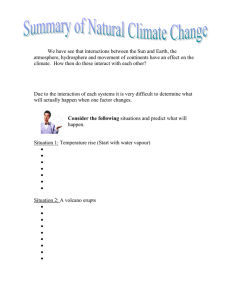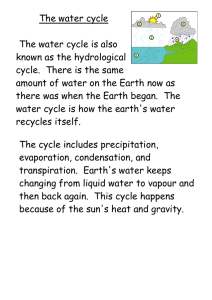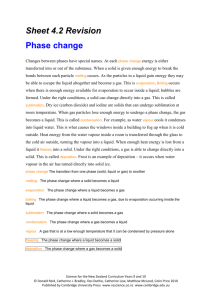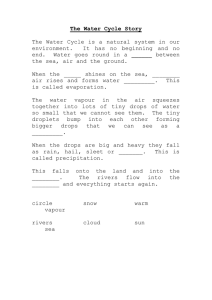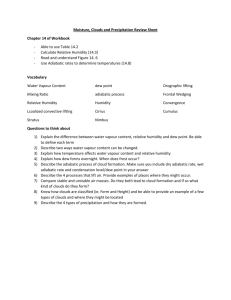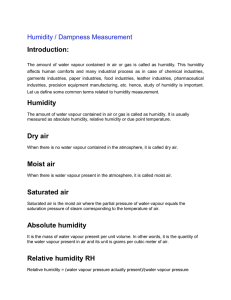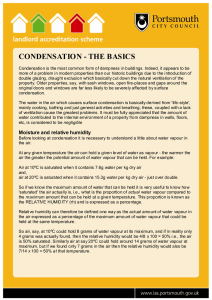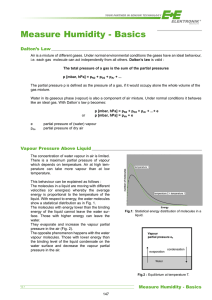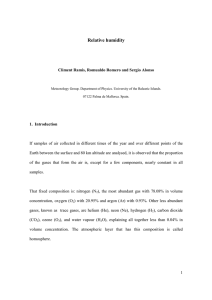Water: An Earth History
advertisement
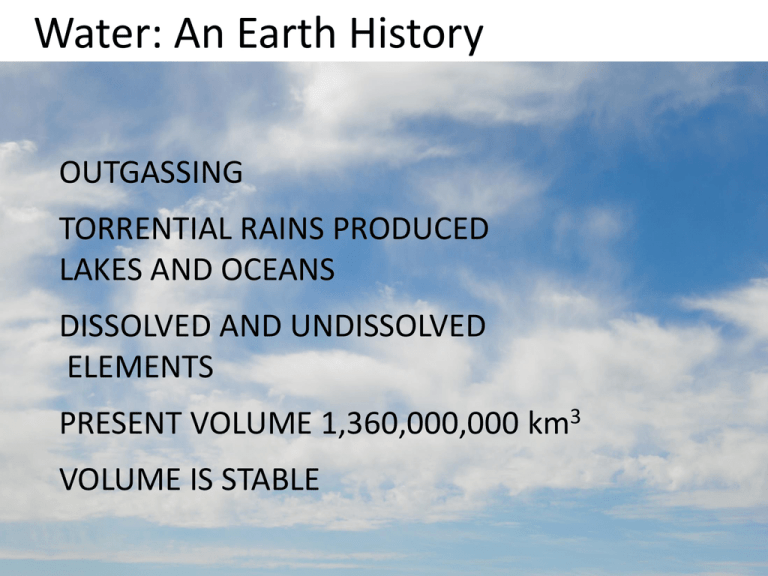
Water: An Earth History OUTGASSING TORRENTIAL RAINS PRODUCED LAKES AND OCEANS DISSOLVED AND UNDISSOLVED ELEMENTS PRESENT VOLUME 1,360,000,000 km3 VOLUME IS STABLE Water Reservoir Oceans 97.24% Ice caps, glaciers 2.14% Ground water 0.61% Fresh-water lakes 0.009% Inland seas 0.008% Soil moisture 0.005% Atmosphere <0.001% Rivers <0.0001% Source: U.S. Geological Survey Some fast-moving molecules escape from the liquid In cool air, H2O molecules are more likely to join nuclei CHANGES DOES NOT CHANGE MASS / VOLUME g H2O / m3 air Specific humidity: the mass of water vapour (g) per mass of air (kg) Maximum specific humidity is the maximum mass of water vapour that can be held by 1kg of air at a given temperature MASS OF WATER VAPOUR TOTAL MASS OF DRY AIR g H2O / kg air The ratio of the amount of water vapour in the air to the maximum amount of water vapour that could be present at the same temperature The relative humidity of saturated air is 100% RH = [H20 vapour content/H20 capacity] x 100 The portion of atmospheric pressure that is made up of water vapour molecules (mb or kPa) SATURATED VAPOUR PRESSURE: The pressure that water vapour molecules would exert if the air were saturated (at a given temperature) RELATIVE HUMIDITY SPECIFIC HUMIDITY Sling psychrometer http://www.csgnetwork.com/canhumidexcalc.html Why do surfaces facing the wind have more frost? BLACK FROST •A surface is required for condensation •Condensation nuclei >0.1 m best •About 10-1000 large nuclei per cm3 (more in lower troposphere and over land) •Hygroscopic or hydrophobic Source: Dust, volcanoes, factory smoke, forest fires, ocean spray salt, sulphate particles from phytoplankton Fog forms if Td is reached Cold water advection fog WHY DOES FOG FORM HERE? Warm water advection fog CAN ADVECTION FOG FORM OVER LAND MASSES? YES Base camp 2º30´25´´N, 77º00´02´´W, 1450 m Field Station Tambito al Cocal River
